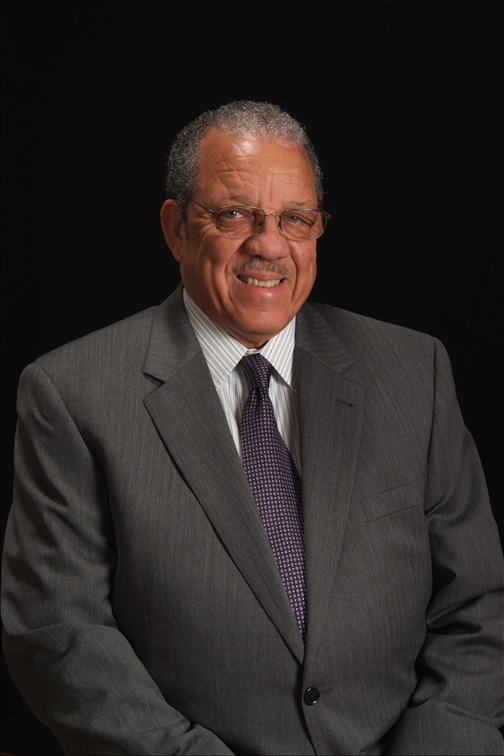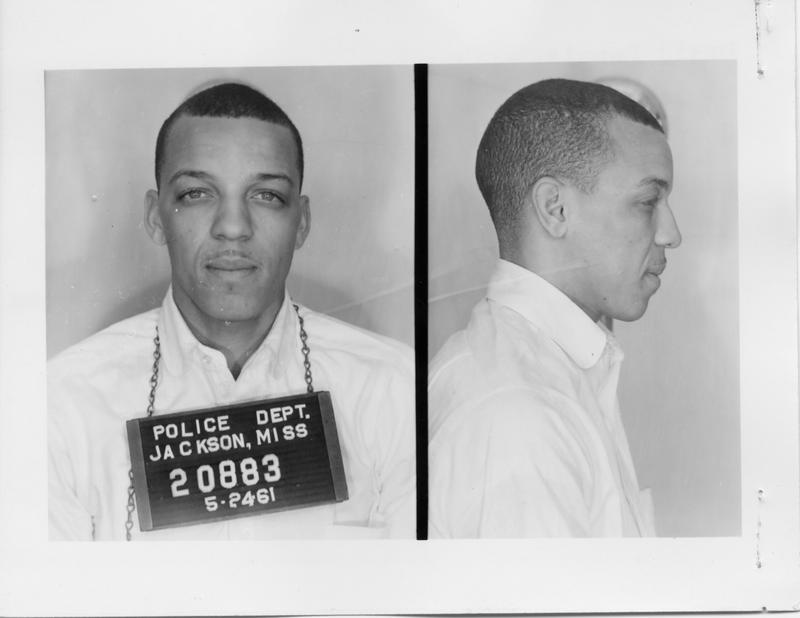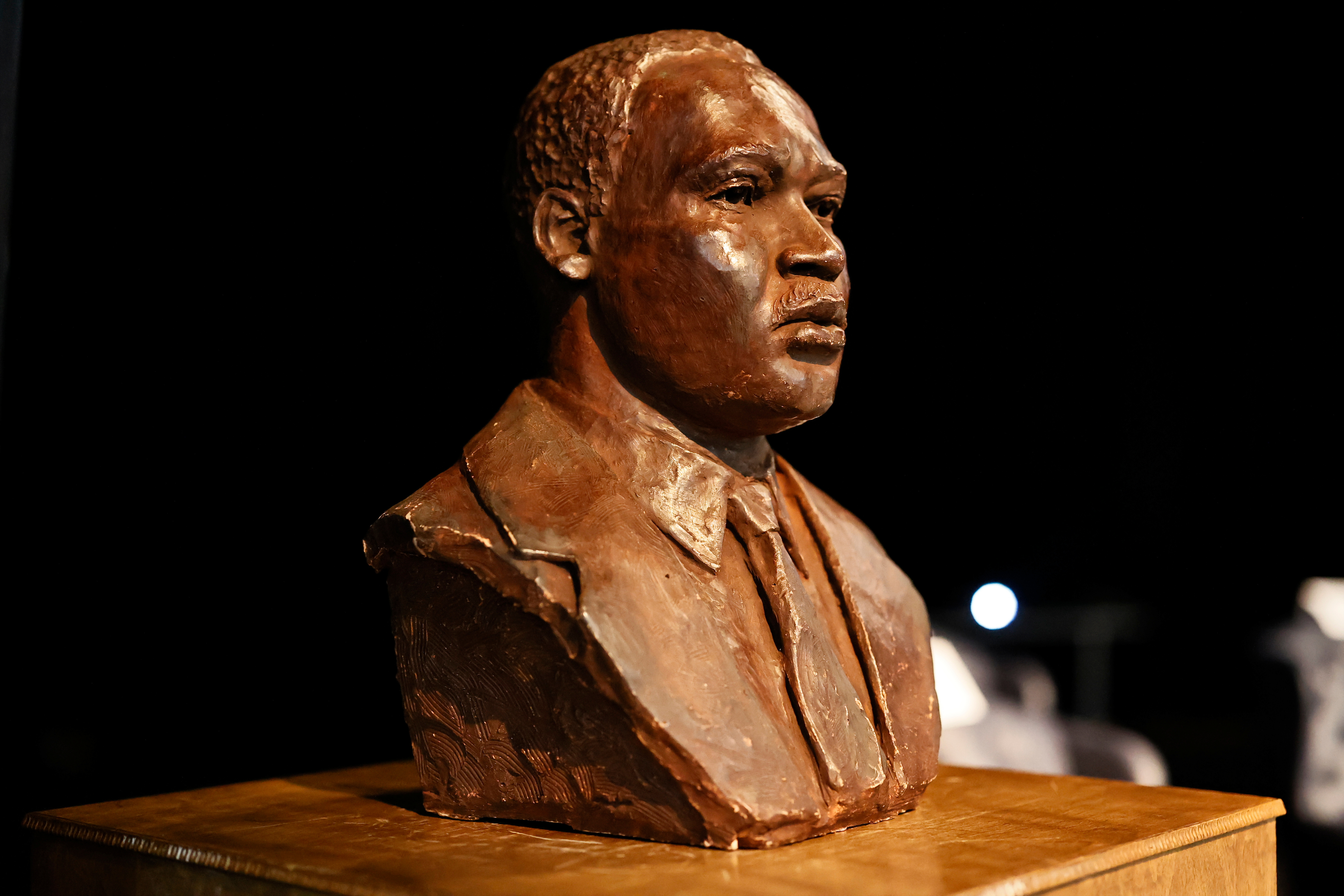![]() [hr]
[hr]

[hr]
Civil rights veteran David J. “Dave” Dennis, Sr., was the keynote speaker for the 53rd annual Dr. Martin Luther King Jr. birthday convocation, which was begun by poet-writer Margaret Walker at Jackson State to honor Dr. King just nine months after his 1968 assassination. It’s one of the oldest celebrations of his life in the nation.
The theme of this year’s MLK Convocation program was dedicated to the memory of the Honorable John Lewis, who urged us all to “get in good trouble, necessary trouble, and redeem the soul of America.”
Dennis is a civil rights veteran who has worked and fought for 60 years to help people gain their civil and human rights in Mississippi and Louisiana. He was also one of the original Freedom Riders who rode from Montgomery to Jackson in 1961.
From the comfort of his home office, Dennis began by accepting his “For my People” award from The Margaret Walker Center at JSU. He said, “I accept this honor on behalf of all the people that paved the way for this day but, have never been recognized for their sacrifices or contributions. Thank you, thank you, thank you.”
“For My People Awards” honors institutions and people-living or deceased-who have distinguished themselves by preserving African American history and culture in the U.S.
In his speech, Dennis focused on the events that transpired in Mississippi beginning in 1962, when he came to the state as a young adult and through 1965. Upon his arrival in April of 1962, he recalled Medgar Evers being one of the first individuals that he met. “He introduced me to local leaders in Jackson, Pearl and Canton. We immediately became friends. One of the things he showed me, was that there was a movement in Mississippi, focusing on getting Blacks registered to vote.”
In May 1962, Dennis was arrested in Clarksdale, Mississippi while attending a state meeting with Dr. Aaron Henry, who was the Mississippi President of the National Association for the Advancement of Colored People. The purpose of the meeting was to organize a statewide voter registration program.
On October 1, James Meredith entered Ole Miss and “the state is going crazy”. By 1963, boycotts were taking place in Jackson by the NAACP and from students attending Brinkley Middle School, Lanier High School and Tougaloo College. Dennis said, “There were many arrests from these events.”
He further recalled that on June 12, Medgar Evers was assassinated at his home, and that same night President John F. Kennedy introduced of the Civil Rights Bill. It was the third civil rights bill in less than 10 years.
“The next day, Ms. Fannie Lou Hamer, Euvester Simpson and Annelle Ponder were severely beaten in Winona, Mississippi while returning from a voter registration workshop in Tennessee. Several days later, many people were arrested when they attempted to march in downtown Jackson after Medgar Evers’ funeral.”
As a result, similar demonstrations were attempted, and more than 350 students were locked in a car pin at the fairgrounds in Jackson, Mississippi, said Dennis, continuing his history lessons and walk down memory lane.
On August 28, 1963, the March on Washington took place and Dennis recalled that, “white racists became more aggressive across the South during this time.”

Then, on September 15, 1963, four girls were murdered in Birmingham by white racists, who bombed the 16th street Baptist Church during Sunday school, he said.
Dennis cited other events, including November 22, 1963, when President John F. Kennedy was assassinated. Also, this was during the winter of 1963, in the Mississippi Delta when the Federal Food Commodity program was terminated as a retaliation method towards Blacks who tried to register to vote.
“It was a bitter and cold winter. Blacks were freezing and starving. Some began to blame us. We could feel the fear and desperation of the local people. In response to this, we increased our activities by bringing in food and clothing for those in need.”
In 1964, Freedom Summer began and Dennis served as field secretary for the Congress of Racial Equality and co-director of the Council of Federated Organizations. He was instrumental in assisting with organizing this historical event.
“We had to become more aggressive to get the attention of the country or we were all going to die.”
During Freedom summer, the Ku Klux Klan killed at least 19 Black people, and white mobs of police beat and injured more than 80 others. Furthermore, at least 1,000 local people were arrested on various charges for trying to register to vote. At least 30 Black churches were either burned or bombed and countless Blacks lost their jobs and were evicted from their homes for supporting the movement.
“What did we accomplish during this time? The Civil Rights Act was passed during Freedom Summer in 1964, and the Voting Rights Act was passed in 1965,” Dennis said.
He continued, “The real heroes of Freedom Summer were those who made the sacrifice knowing that in fact that they could be beaten, arrested or killed.”
In the next decade, Mississippi had more Black elected officials than any other state in the country.
“This brought about a wave of hope for Blacks across the country,” Dennis said.
Reflectively, Dennis said, “Let’s all give some thought and prayers to those who worked and died to pave the way for those across the country to have the freedoms and rights of today. They are not forgotten and are loved by all.”
After Freedom Summer, Dennis returned to Dillard University, completing his degree in 1968, and earning his law degree at the University of Michigan. In 1972, he became an organizer, challenging the Louisiana Democratic structure that resulted in an African American chairman and a majority African American delegation being sent to the national convention- the first time since Reconstruction.
The virtual MLK event, featuring Dennis’ speech, was streamed live on King’s birthday on Friday, Jan. 15, and still can be viewed if you click here.






